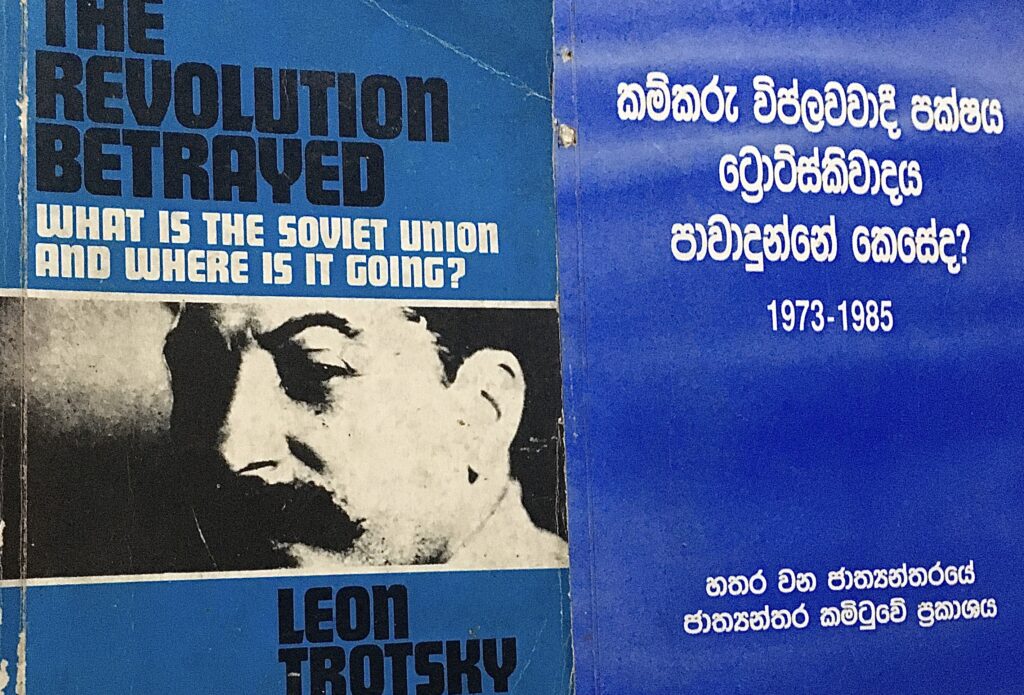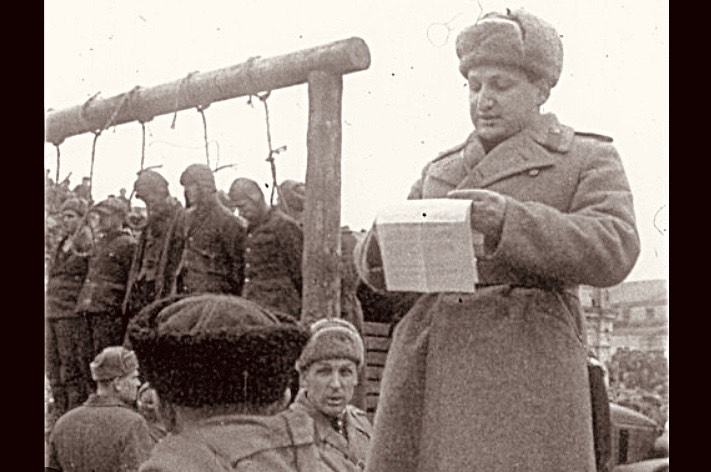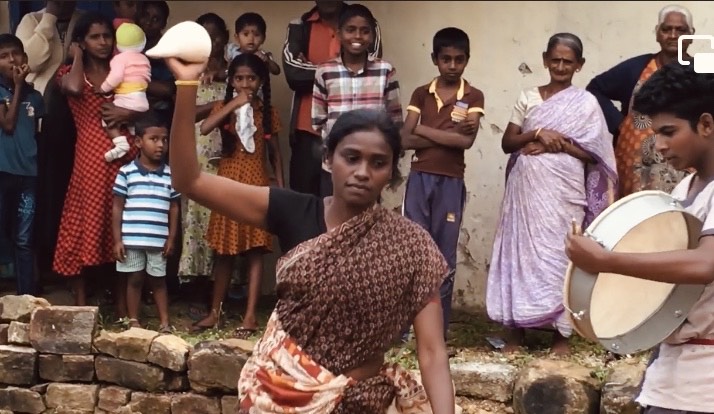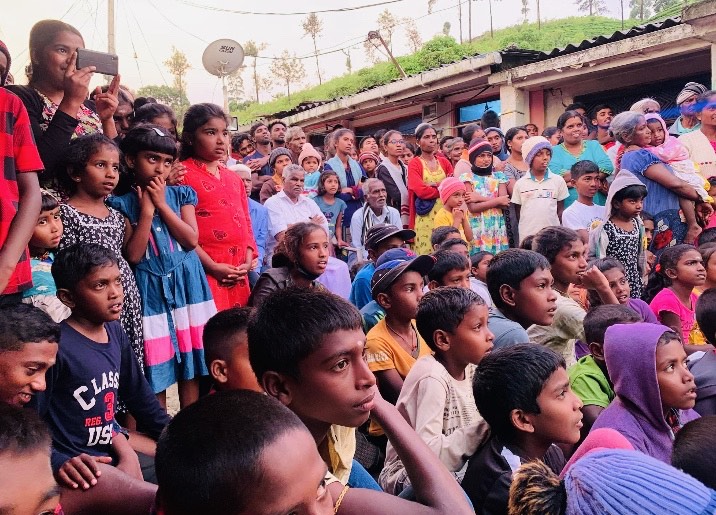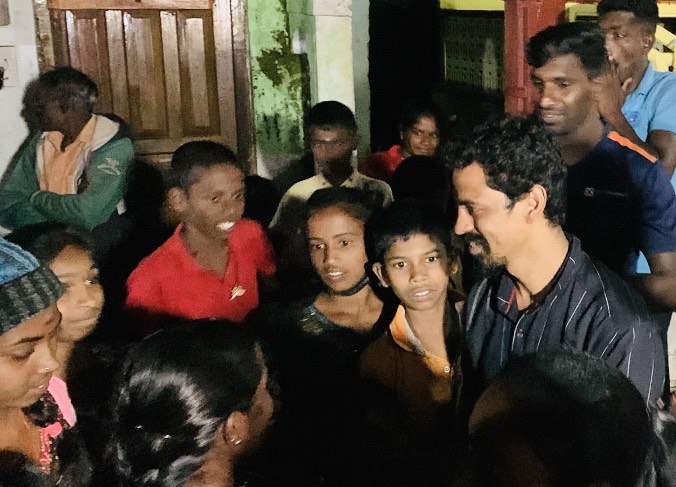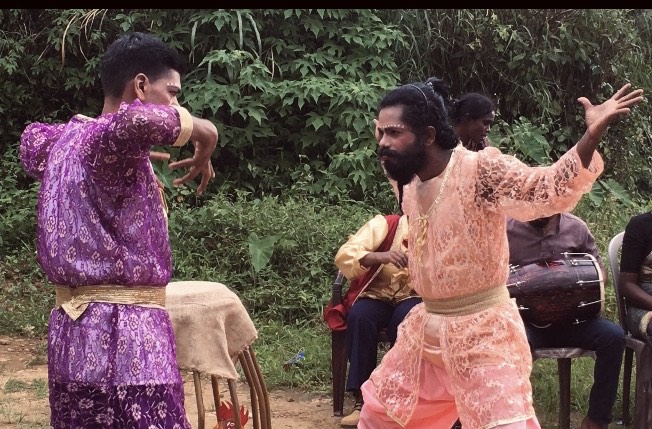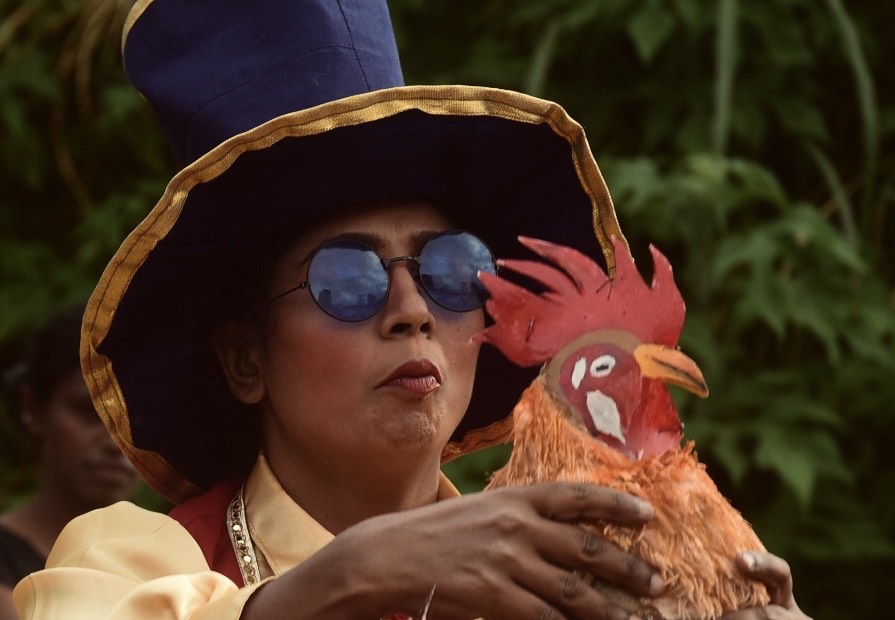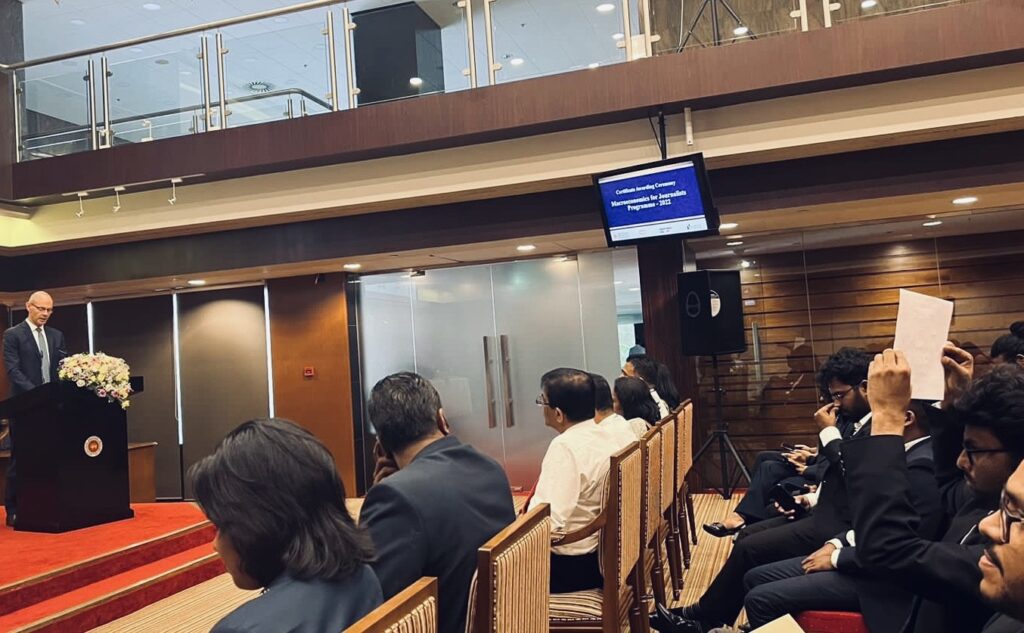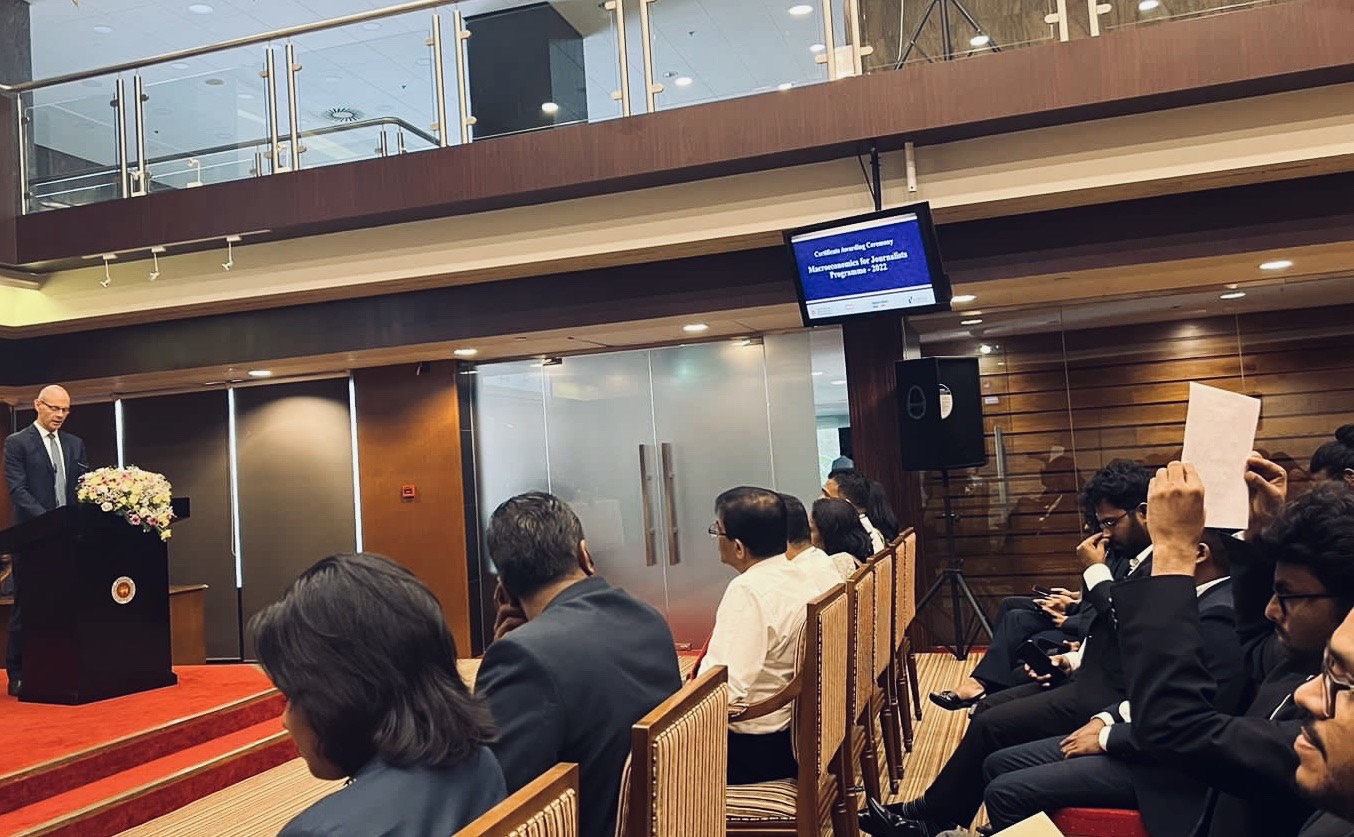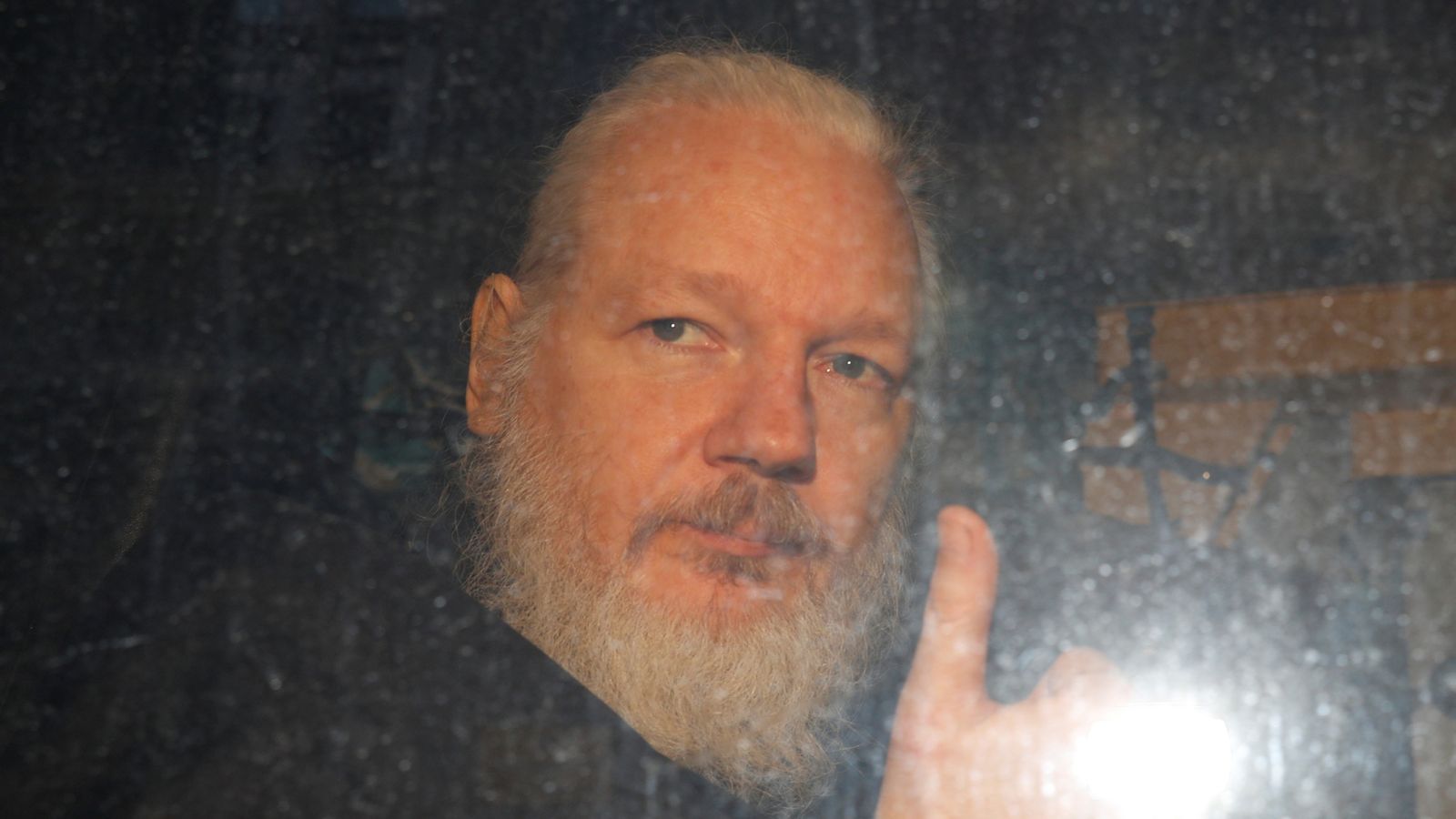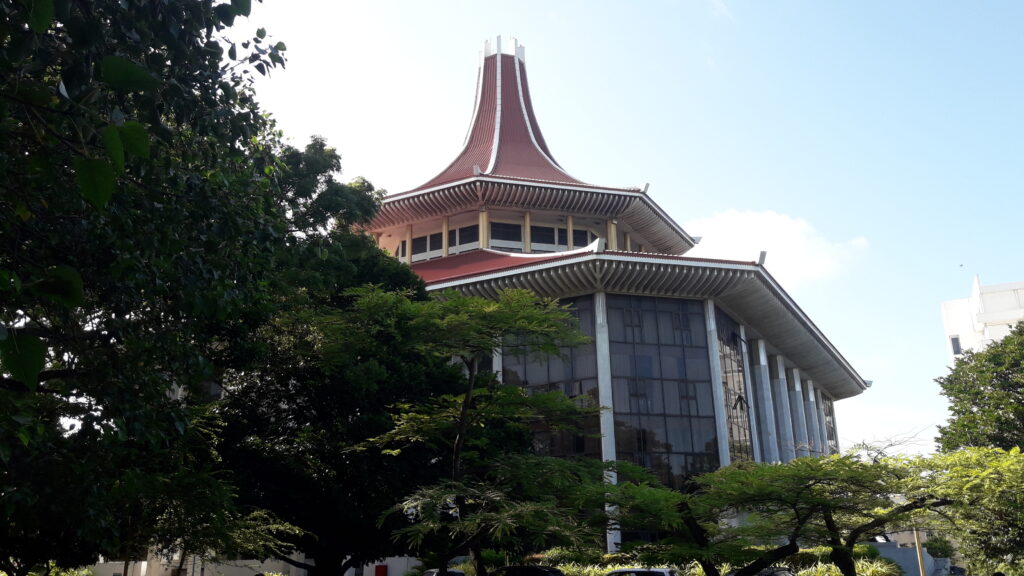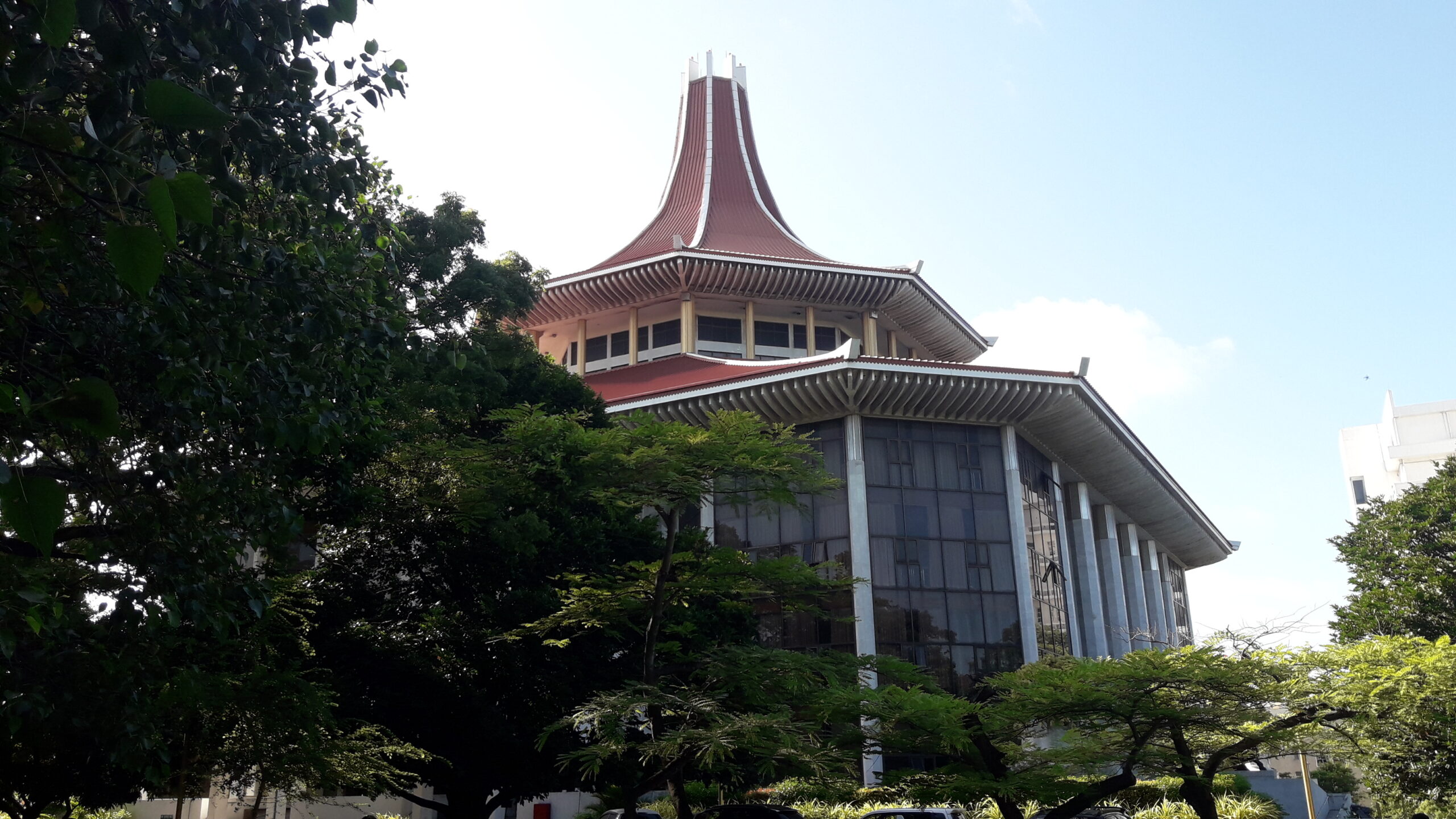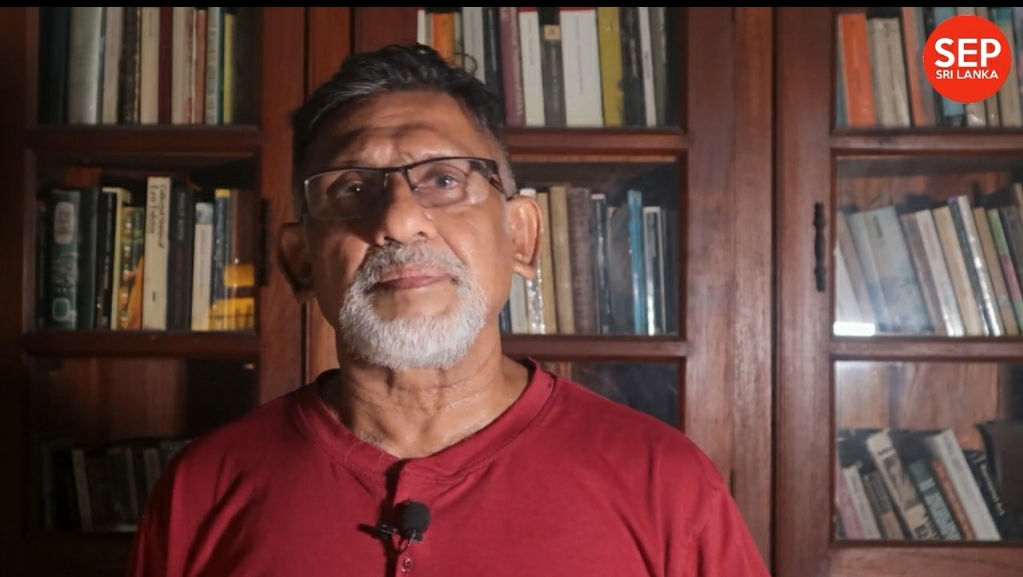Caricature of Reporting: How the WSWS Sri Lanka correspondents reported the EPF protest in Colombo
By Nandana Nanneththi.
“The report published on the World Socialist Web Site (WSWS) on September 1, under the title “Over 1000 workers protest in Colombo against Sri Lanka government’s attacks‘, has yet again demonstrated the gross negligence of the Sri Lankan editorial board, hence undermining the historical credibility of the website.
The report was on a protest organized by a multitude of trade unions and civil organizations, and held in front of Colombo Fort railway station on August 28, against the subsuming of Employees’ Provident Fund under the government’s move to restructure the domestic debt. The Organizers, comprising about 40 organizations, could only manage to gather far less than 300 to participate in this demonstration. The number included the representatives of trade unions, capitalist parties, pseudo-left organizations and non-governmental organizations . (See the short video from the CACPS Facebook page)
The World Socialist Web Site, the publication tool of the International Committee of the Fourth International (ICFI), is the only authentic global socialist publication with a reputation as the theorist, the propagandist and the organizer of the global working class. Read daily by hundreds of thousands of readers all over the world, it is respected even by its adversaries for its integrity, scientific analysis and authenticity. It is the only international media for the working class to know the truth. Even In the past, on several occasions, we have raised objections when the Sri Lankan Editorial Board Published distorted reports on the web site.
The report claimed that, “about 1,200 workers and retirees participated in a Monday lunchtime protest at Colombo Fort Railway Station on August 28 to oppose the Wickremesinghe government’s attacks on pensions and new anti-democratic amendments to the country’s existing labor laws,” hence blaming the trade unions for the poor participation, allegedly due to the timing of the campaign, held at the one hour lunch break. The reason proffered for the poor attendance is the lack of such intent on the part of the trade unions and their commitment to dissipate the struggle.
This is a distortion in which the reporters forced the insertion of what they called the “lunch hour” into the report. It is thus argued that the agitation was restricted to the duration of the lunch hour to prevent the workers from participation, and had it been a call for a strike, the workers would have gathered by their thousands in response. Then, the report goes on to say that the workers of the Katunayake Free Trade Zone outside of Colombo also participated in the campaign. Needless to say, given the limited numbers participating, the percentage of FTZ workers’ participation would be in the decimals of a percentage. But, In actual fact, was it not the failed tactic of the organizers who hoped to get a better participation by making the opportunity for the workers in the neighborhood areas to participate without much difficulty or sacrifice during their lunch break? Objective factors exist as proof. For example, the Ceylon Bank Employees’ Union’s member participation in the protest could be counted with the fingers in one’s hands. It goes without saying that the area near the railway station would not have got enough space if only the employees of the banks around the Colombo Fort participated in the campaign.
Anyone with common sense should realize that the workers do not look for ‘free hours’ to take part in struggles and, sometimes, they risk their own lives in struggles. This ‘lunch hour’ fantasy is imposed only in order to build up the story as per the subjective expectations of the reporters. The trade unions expected the participation of about 5,000 people. They wanted to deceive and rally the workers around them, upon whom their grip was slipping, by using this opportunity to call a ‘struggle’ against the EPF issue. Hence they wanted to demonstrate to the ruling class that they still had influence over the workers, and to prove their worthiness to strike a bargain. Many workers are disillusioned about their treacherous role resulting only about 5% of the numbers expected by the union leaders actually participated in the campaign.
Over the past period the workers and masses engaged themselves in the struggle against the ruling classes not on anybody’s invitation or direction, but voluntarily. However, as a result of the continuing betrayals of these struggles- one after the other – the working class is temporarily trying to catch its breath back. If this had not been the case, there were objective grounds for workers to participate in this campaign, whether or not there was a calling. The said report tries to convince the reader that thousands would have participated if not for the technical error of limiting it to a ‘lunch hour’ demonstration, hence pushing true facts under the rug.
On the same morning, a meeting organized by the Electricity Consumers Association involving some of these leaders, and led by MDR Athula Of the Federation of Democratic State Employees’ Unions, was held at the Colombo Public Library Auditorium. The speakers of the meeting accused the Ceylon Electricity Board (CEB) of making emergency purchases (to make up for the shortfall in the national grid) and thereby discouraging investors of renewable energy resource development, causing them huge losses. The meeting seemed to be held under the auspices of the companies involved in renewable energy development, and the audience consisted of people who were ‘encouraged’ to participate by those companies. The leaders of that union, after making an appeal to the President Wickremesinghe to intervene to correct this situation, then joined the EPF agitation in front of Fort Railway Station. These leaders did not have any effective program that could be presented to the electricity consumers or to the EPF members, except for making stage-shaking speeches and whining appeals to the President to solve the problems. Is it a surprise that the workers and the poor do not give any attention worth two cents to these leaders?
There is no reason that, to the people of Sri Lanka who rejected all the political parties and their representatives in Parliament only less than a year ago, not to feel the long-run of betrayals of the trade unionists. The problem of the people consists in their inability to put these betrayals in a correct class perspective, having no alternative course of action and a leadership to guide it. A genuine working class organization can take over the leadership of the working class under these conditions. A struggle without indecision and hesitation is necessary to be developed against opportunism to realize this task. It is, therefore, a task bound with a relentless struggle against the practice of submitting to the subjectivity of glorification of the desire of the working class for a struggle to defend its living conditions, which is a form of backdoor acceptance of the familiar mantra, ‘the workers are not yet ready’, in the lethargic practice of imposing already known abstract truths on the live class struggle.
The above report in the WSWS announces the generalized truth of “this limited protest was called to assuage the growing anger of the working class against the government’s attacks”. It is also such a truism that the unions “have no intention of mobilizing workers in a real political and industrial struggle against the Wickramasinghe government”. But nevertheless, none of this, without a proper investigation within the frame of objective f
acts with which we are confronted with at the moment, and instead, shaping the descriptions of real events to suit ideas of one’s imagination and trying to impose them on the public, is completely hostile to the Marxist method followed by the WSWS.
The title of the article published in ‘The-Socialist.lk’ about this same event was, “Petty-bourgeois farce staged in front of the Colombo Railway Station on Monday”. That is the conclusion drawn from the analysis of the facts we gathered. As pointed out in that article, the union leadership is facing difficulties in getting the workers involved. “Duminda Nagamuwa, a leader of the Frontline Socialist Party, was complaining about the non-participation of the workers even before the event . He expressed his belief saying, ‘the workers numbering about 2.2 Million should think about this at least now’. The general concept that’s peddled by the union leaders is that “the working class is a stupid and backward lot that is not interested in protecting its own rights.” In that article, we confirmed with facts that the workers do not have faith in these unions and leaderships, not without reason, and that the bureaucracy works to demoralize the workers and to incite the petty bourgeoisie against them.
The show staged in front of the Fort railway station was a petty bourgeois farce; A comedy staged by the trade Unions. The union leaders, who threatened to topple the government if their demands were not met, proceeded a small distance forward as if they were going on a demonstration to the Central Bank. When the police announced that they, “are Ordering the crowd to disperse under Section 95(1)”, the union leaders vowed to the police, “We don’t want to go on in a demonstration as such, if a statement is issued saying this will not be done today, we will not proceed”. When some in the crowd demanded a promise that the Provident Fund would not be restructured, Ananda Palitha, one of the leaders in charge of campaign operations, the convener of the Samagi Trade Unions United Front ( the umbrella trade union front of the SJB, a break-away political party from the UNP and the main opposition party in the parliament), instead asked emphatically several times for a promise on “not doing it today”. “We need to win the people’s trust,” he stated the stark truth. Everything happened according to the pre-arranged script.
As reported by ‘The-Socialist’, the Central Bank postponed the decision on the restructuring of the fund until September 21, as a related case is pending in the Supreme Court. Union leaders Boasted showing this postponement too, as a victory. (see the real event, in the short video from the CACPS Facebook page)
Meanwhile, the police brought forth a promise for a discussion with the Central Bank. The union leaders declared victory and announced the end of the day’s proceedings. The discussion held with the Central Bank on September 5 failed as expected. According to the unions, what is now necessary is to bring in a new capitalist government, and to have new discussion. It’s so unfortunate that the restructuring would be complete. As The-Socialist pointed out, this campaign was entirely a reactionary operation against the workers, which was called for the sole purpose of providing the capitalist state an opportunity to constrain them, isolate them and attack them. Nothing else can be expected from these trade unions, which have demonstrated their impotence and anti-worker. pro-capitalist nature in every case; for example as in the case of privatization of the Eastern Terminal of the Colombo Port, and in the sale of important sectors of the Petroleum corporation to the private sector.

The WSWS article ends with a statement from a former employee of the Fertilizer Corporation. “We must continue to apply pressure. Ranil (Wickramasinghe) wants to continue the dictatorial rule but we want him out.” The same was said by the capitalist and pseudo-left party leaders who led the campaign. As The-Socialist report pointed out, the campaign of the trade unions was directed to infuse to the broad society the capitalist point of view – that the only options available are either concessions or another capitalist government. The most important thing we see here for us to simply report is that, if any report on revolutionary media is spreading the same stance, there is no point in that coverage. One can simply follow the capitalist media.
Bolshevism, upon which the WSWS bases itself, was extremely concerned with the accuracy of data:
“The data supplied by the Bolshevik press of 1917 are proving, in the light of historic criticism and the documents of the epoch, incomparably more correct than the data supplied by all the other newspapers. This correctness was a result of the revolutionary strength of the Bolsheviks, but at the same time it reinforced their strength. The renunciation of this tradition has subsequently become one of the most malignant features of epigonism.” (The History of the Russian Revolution, Volume II, page 356)
Our calling to the workers should be directed to overthrow the unionism which has become a major obstacle in the struggle against capitalism and, to establish a mass movement against capitalism through the formation of Action Committees on the basis of working class democracy.
Addressing the campaign, Athulasiri Samarakoon, a university lecturer, shamelessly declared the pseudo-left and trade union preparations to protect the anti-worker capitalist state. See the video from the CACPS facebook page
Instead, the WSWS article’s principal objective seems to be announcing that, even the trade unions and the pseudo-left leaderships are still possessing the capability of drawing the workers of Sri Lanka into struggles, if not for their tactical érrors’. This attitude implies the adaptation to a backwardness inherited through the historical roots and expressed within the working class, instead of a relentless struggle to solve it.
We will not turn our backs to the partial demands of the workers. Since its inception, the EPF fund has been governed by a monetary board headed by the Governor of the Central Bank. Although the fund belongs to the workers, it is not accountable to them, but to the capitalist governments. This should be changed. The demand of trade unions and other capitalist agencies which had called this ‘struggle’, was that the union leaders too should participate in making decisions about the provident fund as it is a workers’ fund. But the reality is that these unions represent less than approximately 15 percent of the country’s working class, and they do not budge even an inch away from capitalism. The workers should not fight for these empty demands, but to get the full control of the fund to a board of their own choosing, the members of which they can elect and recall at any time. A prerequisite for realizing this, is the displacement of trade unions by workers’ independent Action Committees in every workplace, against all the delusive bluff of pseudo- left organizations.
[This article was earlier published in Sinhalese here on September 09, 2023.]

